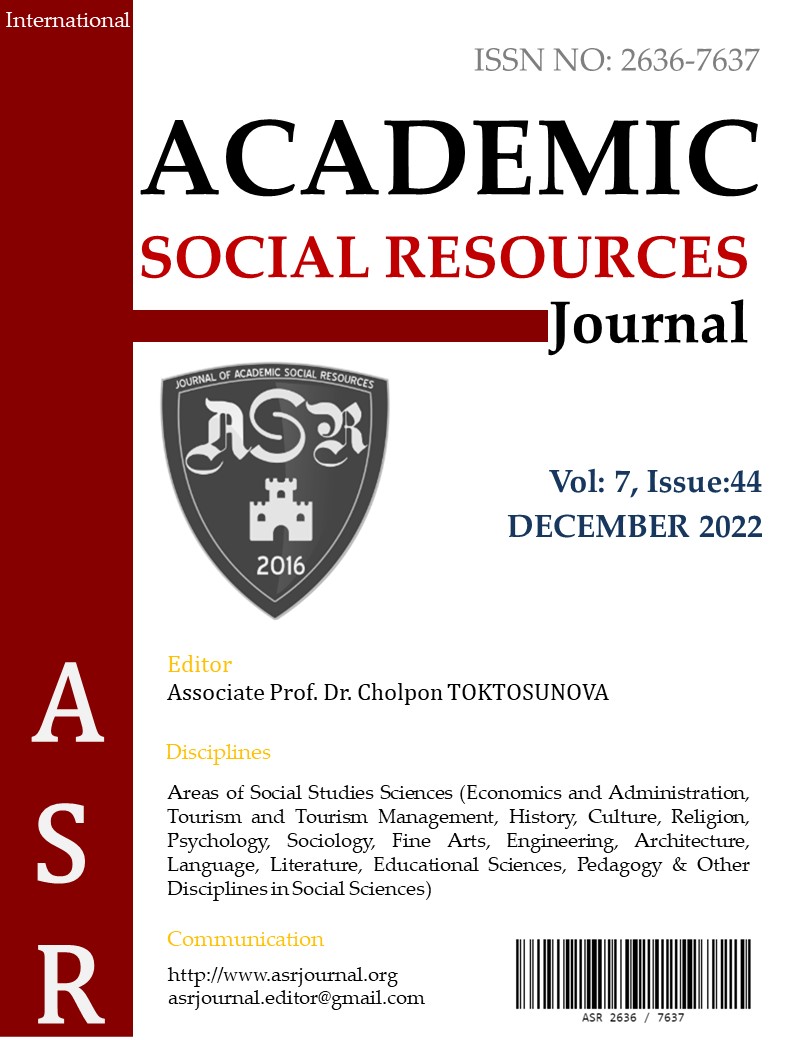Sosyal Medyada Paylaşılan Post-Truth Söylemlerin Ve Dezenformasyonların Türkiye'nin Güvenliğine Etkileri
Author :
Abstract
Sosyal medyada post-truth ve dezenformasyon kavram ikilisi hemen hemen aynı amaç için kullanılmaktadır. Bu açıdan paylaşılan bilgilerin hakikat mi yoksa yalan mı olduğu önemli değildir. Önemli olan insanların duygu ve düşüncelerini bir noktaya toplamaktır. Bu nedenle rakibini aşağılamak ve onu yenmek için kasten kirli bilgi paylaşmak mubahtır. Post-truth günümüzde moda kavramlardan birisidir. Post-truth'a bu yolu açan da Oxford Sözlüğü olmuştur. Oxford Sözlüğü post-truth'u 2016'da uluslararası alanda yılın kavramı seçmiştir. Ayrıca hem Donald Trump'ın seçim kampanyasında hem de İngiltere'deki Brexit referandumunda post-truth siyasete sıklıkla baş vurulmuştur. Bu iki olay kavramın küreselleşmesine büyük katkı yapmıştır. Önemli olan sosyal medyada paylaşılan post-truth söylemlerin ve dezenformasyonların ülkelerin kamu düzeni ile güvenliğine ve insanların sağlığına zarar vermemesidir. Ne yazık ki bazı sorumluluk sahibi insanlar ve terör örgütleri yaptıkları sosyal medya paylaşımlarıyla "dijital terörizme" katkıda bulunuyorlar. Post-truth kavramı Türkiye'de de sıklıkla kullanılmasına rağmen kavramın Türkçesi konusunda tam bir mutabakat yoktur. Bu nedenle çalışmamız boyunca post-truth ve dezenformasyon kavramlarını gerek tek tek ve gerekse de yan yana aynı doğrultuda kullandığımızı ifade etmek isteriz. Çalışmamızın ilk etabında post-truth kavramı ve tarihçesi, Donald Trump'ın seçim kampanyası ile İngiltere'deki Brexit'in kavramın küreselleşmesine nasıl katkı yaptığı ve kavramın Türkiye'de algılanışı ele alınmaktadır. Daha sonra Türkiye'de post-truth söylemler ve dezenformasyonlarla harekete geçirilen kitlelerin ve terör örgütlerinin güvenlik açısından sebep olduğu sorunlar analiz edilmektedir. Bunun için üç örnek olay seçilmiştir: 27 Mayıs 1960 askeri darbe süreci, 2013 Gezi Parkı Eylemleri ve 6-8 Ekim 2014 Kobani eylemleri. Son olarak çalışmanın kaleme alındığı dönemde yürürlüğe giren dezenformasyon yasası hakkında yapılan tartışmalara ve eleştirilere kısaca temas edilmektedir.
Keywords
Abstract
The concept of post-truth and disinformation is used for almost the same purpose in social media. In this respect, it does not matter whether the information shared is true or false. The important thing is to gather people's feelings and thoughts to a point. For this reason, it is permissible to deliberately share dirty information in order to humiliate and defeat your opponent. Post-truth is one of the fashionable concepts nowadays. It was the Oxford Dictionary that paved the way for post-truth. The Oxford Dictionary named post-truth the concept of the year internationally in 2016. In addition, post-truth politics were frequently used in both Donald Trump's election campaign and the Brexit referendum in England. These two events contributed greatly to the globalization of the concept. The important thing is that the post-truth discourses and disinformation shared on social media do not harm the public order and security of countries and the health of people. Unfortunately, some responsible people and terrorist organizations contribute to "digital terrorism" with their social media posts. Although the concept of post-truth is frequently used in Turkey, there is no complete agreement on the Turkish version of the concept. For this reason, we would like to express that we have used the concepts of post-truth and disinformation both individually and side by side in the same direction throughout our study. In the first stage of our study, the concept of post-truth and its history, how Donald Trump's election campaign and Brexit in the UK contributed to the globalization of the concept and the perception of the concept in Turkey are discussed. Then, the problems caused by the masses and terrorist organizations in Turkey, which are mobilized by post-truth discourses and disinformation, are analyzed in terms of security. Three case studies have been selected for this: May 27, 1960 military coup process; 2013 Gezi Park Protests and 6-8 October 2014 Kobani actions. Finally, the debates and criticisms about the disinformation law, which came into force at the time the study was written, are briefly touched upon.
